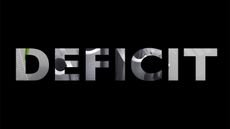Too embarrassed to ask: what is bitcoin?
This week, we explain just what bitcoin is – and why the cryptocurrency is so revolutionary.
Why does the pound in your pocket have value? Why can you take it to a shop and expect the owner to accept it – or an electronic version of it – in exchange for a couple of pints of milk? It’s not because it’s backed by gold. Those days are long gone. Yet nor is the pound backed purely by force of habit or faith.
Ultimately, the pound is worth something because the UK government says that it has value. In effect, the pound is backed by the strength of the UK’s economy and institutions, and in the ability of the government to tax the populace.
This may seem like a reasonable bet. The risk is that, across history, plenty of governments have collapsed, and their currencies have gone with them. And even those countries which are still successful today have had plenty of hairy moments.
Subscribe to MoneyWeek
Subscribe to MoneyWeek today and get your first six magazine issues absolutely FREE

Sign up to Money Morning
Don't miss the latest investment and personal finances news, market analysis, plus money-saving tips with our free twice-daily newsletter
Don't miss the latest investment and personal finances news, market analysis, plus money-saving tips with our free twice-daily newsletter
What if there was a form of money that didn’t rely on the backing of any one entity? This is the core idea behind bitcoin.
Bitcoin is a form of digital currency called a cryptocurrency. There can only ever be 21 million bitcoins in existence. They are created (or “mined” in the jargon) by computers competing to do very hard sums.
The technology that underpins bitcoin is the blockchain. Put simply, the blockchain is just a big database. It records who currently owns each bitcoin, as well as the entire transaction history of each individual coin.
The key thing about the blockchain is that unlike a typical database, it isn’t controlled centrally. Instead, it’s what’s known as a “distributed ledger”. It’s entirely public – anyone can see it – and every transaction is verified, not by one central body, but by the computers that form the entire bitcoin network. In other words, bitcoin is a form of money that does not depend on the solvency or trustworthiness of any central authority at all.
Will we ever use bitcoin for day-to-day transactions? It’s unlikely. Governments would rather create their own centrally-controlled digital currencies, rather than cede this power to a truly independent currency.
-
 Stop inheritance tax perk on pensions, says IFS
Stop inheritance tax perk on pensions, says IFSThe government could raise billions of pounds in revenue by closing inheritance tax loopholes, such as on pensions and AIM shares. Is your pension at risk?
By Ruth Emery Published
-
 Revealed: Best buy-to-let property hotspots in the UK
Revealed: Best buy-to-let property hotspots in the UKLooking for the best buy-to-let property locations in the UK? We reveal the top 10 postcodes with the strongest rental returns
By Oojal Dhanjal Published
-
What is an investment trust?
Videos “Active” investment funds come in two main varieties, one of which is investment trusts. But what exactly is an investment trust?
By Rupert Hargreaves Last updated
-
 What is a dividend yield?
What is a dividend yield?Videos Learn what a dividend yield is and what it can tell investors about a company's plans to return profits to its investors.
By Rupert Hargreaves Published
-
 High earners to pay nearly £2000 more in tax due to fiscal drag
High earners to pay nearly £2000 more in tax due to fiscal dragVideos The government froze tax thresholds, which will drag employees into higher tax bands as wages rise with inflation. We explain what fiscal drag is, and how to avoid it.
By Nicole García Mérida Last updated
-
 What is a deficit?
What is a deficit?Videos When we talk about government spending and the public finances, we often hear the word ‘deficit’ being used. But what is a deficit, and why does it matter?
By moneyweek Published
-
 Too embarrassed to ask: what is moral hazard?
Too embarrassed to ask: what is moral hazard?Videos The term “moral hazard” comes from the insurance industry in the 18th century. But what does it mean today?
By moneyweek Published
-
 Too embarrassed to ask: what is contagion?
Too embarrassed to ask: what is contagion?Videos Most of us probably know what “contagion” is in a biological sense. But it also crops up in financial markets. Here's what it means.
By moneyweek Published
-
 Too embarrassed to ask: what is a marginal tax rate?
Too embarrassed to ask: what is a marginal tax rate?Videos Your marginal tax rate is simply the tax rate you pay on each extra pound of income you earn. Here's how that works.
By moneyweek Published
-
 Too embarrassed to ask: what is stagflation?
Too embarrassed to ask: what is stagflation?Videos Traditionally, economists and central bankers worry about inflation or recession. But there is one thing worse than both: stagflation. Here's what it is
By moneyweek Published